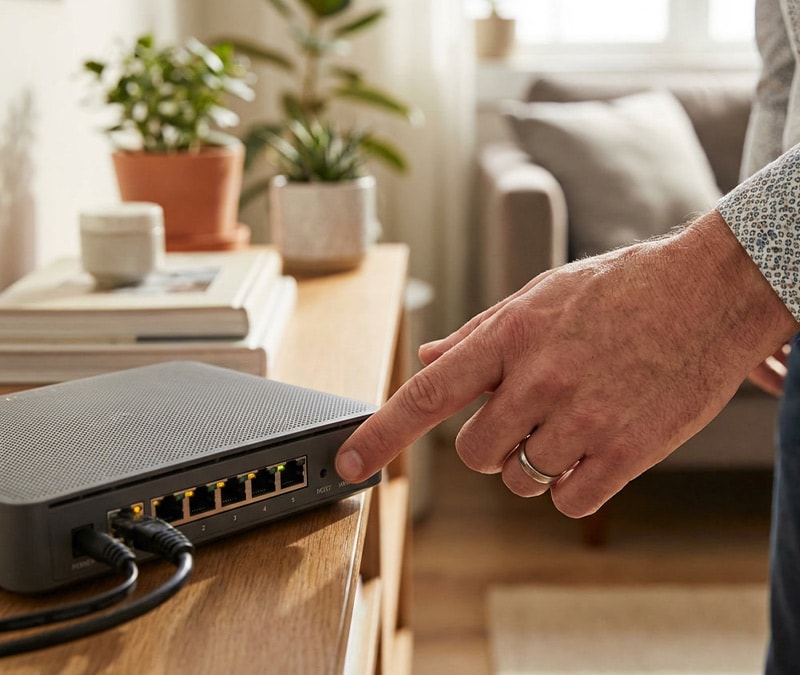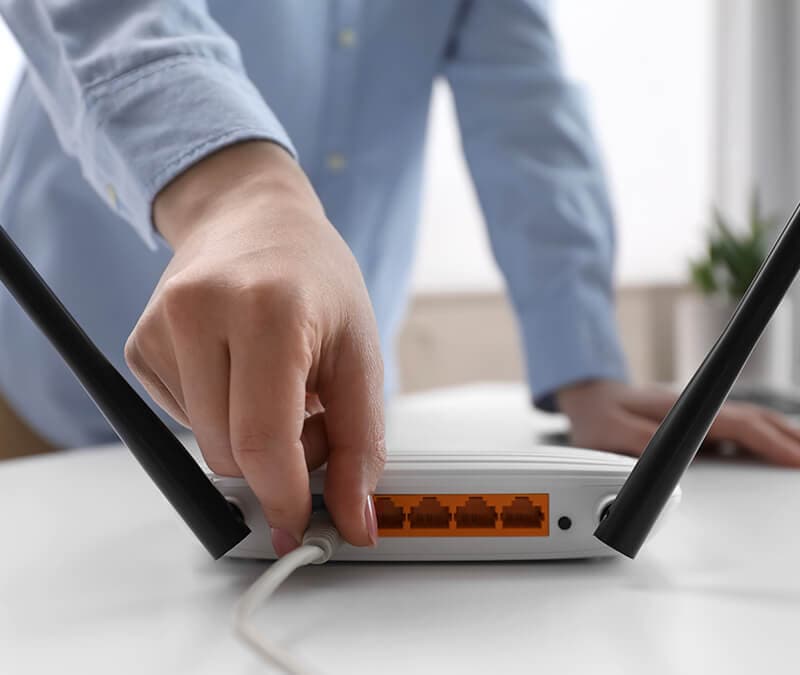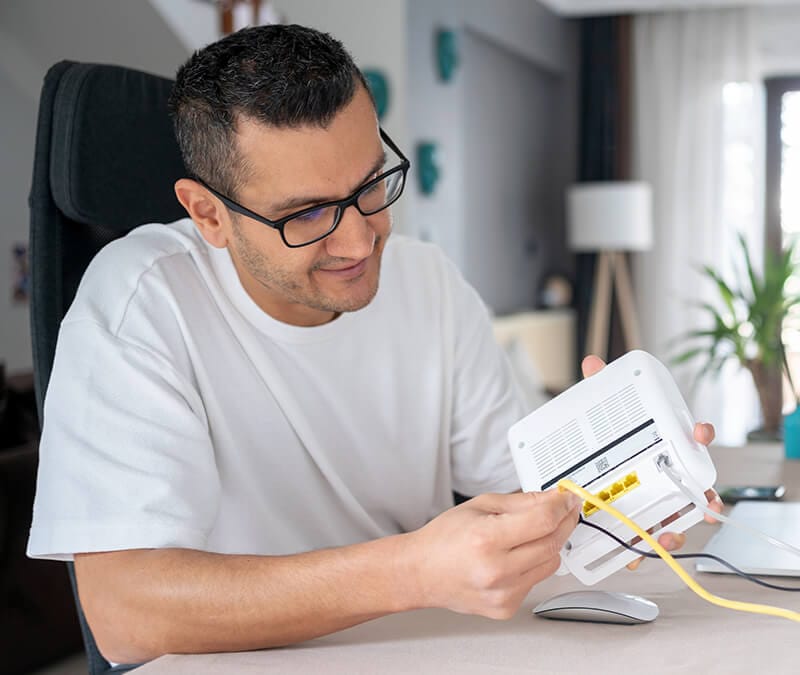Is your money safe? 8 secure ways to pay bills online
Paying bills online is convenient and safe—for the most part. Let’s dive into different online payment options to see how safe they are.

Most of us have done it. We pay for a product online without realizing there was a sneaky subscription attached to the purchase. Even if it’s annoying, it all works well if you manage to contact the company and they refund you right away.
But what if they don’t? Then, you’d have to contact your bank to see what they can do and refund you for. When things like this happen your payment method might be the difference between you getting or not getting your money back.
How to make secure online payments
When it comes to payments, avoiding cash and debit cards is a good rule to follow. These methods offer limited to no protection against fraud. Instead, opt for more secure options that provide better consumer protections.
Let’s look at some online payment options:
Credit cards
Safety grade: A+
Credit cards are a great choice for a payment method. They offer excellent fraud protection, making them a secure option for online payments. They allow you to dispute charges if something goes wrong. However, it's crucial to monitor your statements regularly for any unauthorized transactions.
Automated Clearing House (ACH) payments
Safety grade: A
ACH payments are electronic bank-to-bank transfers. They are highly secure due to strict banking regulations and consumer protections against fraud. While they are safe, one possible downside is the processing time, which can take a few days. On the other hand, you could see the longer processing time as a good thing if you need to stop a transaction.
Online bill pay
Safety grade: A-
Online bill pay services, usually offered by banks, allow you to schedule payments directly from your account. They share similar security measures with ACH payments, including encryption and fraud monitoring. However, they can sometimes incur fees.
Digital wallets
Safety grade: A-
Digital wallets like Apple Pay or Google Wallet provide a secure way to pay bills. They use tokenization, which replaces your card details with a unique identifier. This reduces the risk of your information being stolen. Ensure your digital wallet is linked to a credit card instead of a debit card for added security.
Mobile app payments
Safety grade: B
Paying bills through mobile apps is convenient and often secure, thanks to encryption and biometric authentication. However, the security depends on the app developer and the device's security measures. Always download apps from reputable sources.
However, there are downsides. Protections for P2P transactions are limited. And if the app offers near-instant payments, like Zelle, reversing a transaction may not be possible.
Prepaid cards
Safety grade: B-
Prepaid cards offer a degree of separation from your bank account, which can be a security benefit. However, they often lack the fraud protection provided by credit cards. They are a good option for small transactions but not the most secure for large payments.
Cryptocurrency
Safety grade: B-
Cryptocurrency is an emerging payment method with robust security due to blockchain technology. However, it’s not widely accepted for bill payments. Additionally, it lacks consumer protections, making it less reliable than traditional methods.
Gift cards
Safety grade: C-
Gift cards are not recommended for paying bills due to their limited security and inability to recover lost funds if they are compromised. They should be used sparingly and only for specific, small transactions.
7 tips to help keep your finances safe and secure
Other than choosing the most secure online payment methods, there are precautions you can take to secure your money. Here are some tips:
- Set hard-to-guess PINs and passwords. Use a mix of letters, numbers, and symbols to make a password as complicated as possible. Consider using Norton Password Manager to store them.
- Enable two-factor authentication (2FA). Adding an extra layer of security is never the wrong choice.
- Never make payments on public wifi. Use Norton VPN to protect your connection and make your payments in a safer online environment.
- Update your software regularly. Make sure you got the latest security patches.
- Review all charges each month. Catch any unauthorized transactions early so you don’t miss your dispute timeframe.
- Don’t click on suspicious links. Be wary of phishing attempts.
- Run malware scans. Regularly scan your devices for threats.
Hide your finances from prying eyes
No one wants to lose money—let alone to a scammer. By following these secure payment methods and tips, you can help protect your finances from cyber threats. Always stay vigilant and make security a priority in your online transactions.
FAQs about safely paying bills
What are the risks of paying bills with a debit card on vacation?
Using a debit card while on vacation exposes you to higher risks of fraud and limited recovery options if your card information is compromised. Try to use a safer payment method, such as a credit card—and if you’re paying online, use a VPN to protect your information and money from cybercriminals.
What is the most secure payment method?
Credit cards are generally considered the most secure due to their robust fraud protection measures. Most issuers offer zero fraud liability, adding a second layer of protection. Also, it’s usually easier to flag fraudulent transactions and manage your card in comparison with other payment methods.
Is it harder to pay bills while overseas?
It can be, especially if you rely on payment methods that are not widely accepted abroad. Using digital wallets or credit cards can simplify the process where you can. If you need to use cash, be careful of ATM skimmers.
Editorial note: Our articles provide educational information for you. Our offerings may not cover or protect against every type of crime, fraud, or threat we write about. Our goal is to increase awareness about Cyber Safety. Please review complete Terms during enrollment or setup. Remember that no one can prevent all identity theft or cybercrime, and that LifeLock does not monitor all transactions at all businesses. The Norton and LifeLock brands are part of Gen Digital Inc.




Want more?
Follow us for all the latest news, tips, and updates.